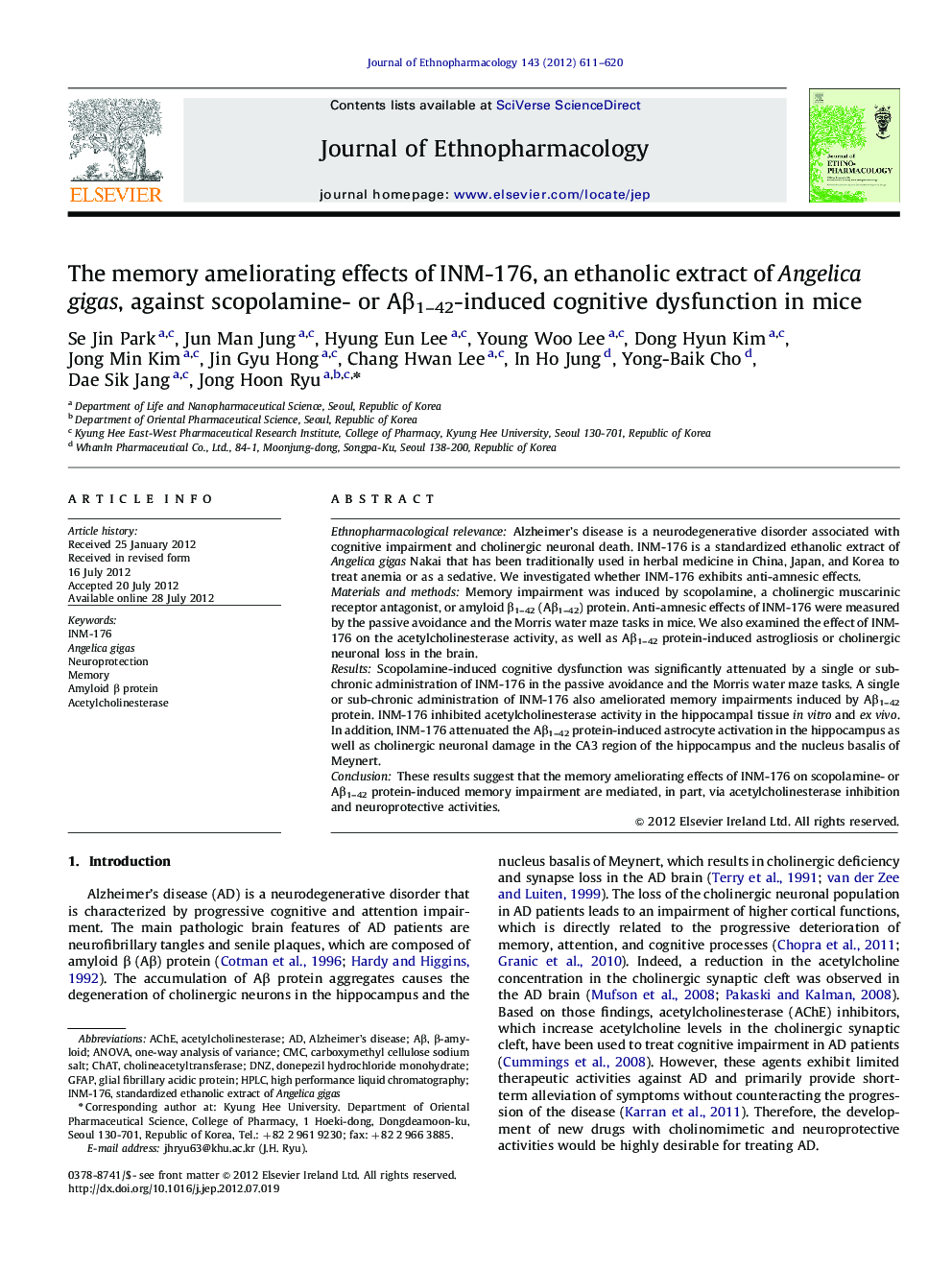| Article ID | Journal | Published Year | Pages | File Type |
|---|---|---|---|---|
| 5838381 | Journal of Ethnopharmacology | 2012 | 10 Pages |
Ethnopharmacological relevanceAlzheimer's disease is a neurodegenerative disorder associated with cognitive impairment and cholinergic neuronal death. INM-176 is a standardized ethanolic extract of Angelica gigas Nakai that has been traditionally used in herbal medicine in China, Japan, and Korea to treat anemia or as a sedative. We investigated whether INM-176 exhibits anti-amnesic effects.Materials and methodsMemory impairment was induced by scopolamine, a cholinergic muscarinic receptor antagonist, or amyloid β1-42 (Aβ1-42) protein. Anti-amnesic effects of INM-176 were measured by the passive avoidance and the Morris water maze tasks in mice. We also examined the effect of INM-176 on the acetylcholinesterase activity, as well as Aβ1-42 protein-induced astrogliosis or cholinergic neuronal loss in the brain.ResultsScopolamine-induced cognitive dysfunction was significantly attenuated by a single or sub-chronic administration of INM-176 in the passive avoidance and the Morris water maze tasks. A single or sub-chronic administration of INM-176 also ameliorated memory impairments induced by Aβ1-42 protein. INM-176 inhibited acetylcholinesterase activity in the hippocampal tissue in vitro and ex vivo. In addition, INM-176 attenuated the Aβ1-42 protein-induced astrocyte activation in the hippocampus as well as cholinergic neuronal damage in the CA3 region of the hippocampus and the nucleus basalis of Meynert.ConclusionThese results suggest that the memory ameliorating effects of INM-176 on scopolamine- or Aβ1-42 protein-induced memory impairment are mediated, in part, via acetylcholinesterase inhibition and neuroprotective activities.
Graphical abstractDownload high-res image (220KB)Download full-size image
